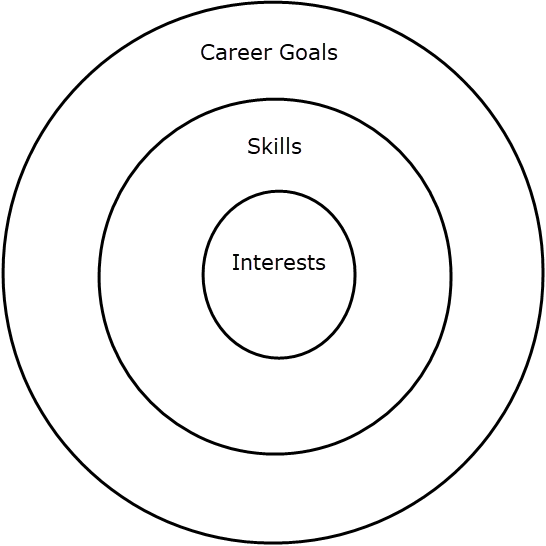Are you confused about what you should do with your life? I’m sure you’ve heard someone say that you need to find your passion if you want to be successful. This seems to be the most common advice given to young people these days from celebrities and influencers.
How does someone go about finding their passion? Is it just laying somewhere and you need to look around until you find it? How do you know if you found it? There are many misconceptions around what a passion is and the part it plays in a successful career.
Passions Aren’t Found, They Are Built
Do you have anything your passionate about right now? Perhaps a sport, hobby, or even a video game. Can you think back to when you realized you were passionate about it? Were you passionate about football the first time you watched a game? Were you passionate about painting the first time you picked up a brush?
Most people seem to think that they already have passions for things, but they just don’t know what they are yet and it’s their job to search around until they stumble upon it. This is not how passions are found, because they cannot be found. Passions are only built.
Mike Rowe, the founder of Dirty Jobs is a great person to talk about the subject of building passions. He has met countless people who have passions for doing jobs that couldn’t have possibly been there before they started doing it. One example is a guy he met who became a multi-millionaire from his septic tank cleaning business.
He said, “I looked around to see where everyone was headed, then I went the opposite way. Then I got good at my work. Then I began to prosper. Then one day, I realized I was passionate about other people’s crap.”
The reason for this is because passions grow with success and praise just as they diminish with failure and criticism. Try to remember how your passions started in the first place. You can probably think back to a time when you just started doing it, and it was only slightly interesting to you.
As you began to do it more and more, then it became a bigger part of your life. You began to get good at it and take pride in it. People began to associate you with this new thing, and it became part of your identity.
This is how passions are created. For all the people you hear who say follow your passion, they often built their passion along the way but forgot to mention that part.
Passions Don’t Equal Career Success
What if you find something you’re already passionate about, does that mean you can turn it into a successful career? More often than not, existing passions are no more than hobbies and will not come to fruition in the form of a successful career.
This is because passions often don’t align with any real market need that people would be willing to pay you good money for. Just because I am passionate about playing video games doesn’t mean I can turn that passion into a career.
If someone is passionate about singing, yet aren’t a very good singer, then trying to turn their passion into a career is no more than a pipedream.
The person who starts their career with their passion will probably be much happier at the start since they feel like they’re doing what they love. The problems start when overtime they come to realize that their passion as a career doesn’t fulfill the life goals that are so important to them.
They might also realize that their skillset isn’t as good of a match as they thought for the type of work they are doing. They begin to constantly feel like they aren’t good enough and start to resent it.
They don’t enjoy doing it anymore, and their work ethic goes down. They then get criticized for not doing a good job, and they definitely don’t want to talk about it after work.
What once was their passion is no longer something they take pride in or associate their identity with. As time goes on the person who built their career starting from their passion only seems to be getting unhappier and doing worse in their career.
This is with the few exceptions where someone’s passion actually turns out to match their career goals and align with their skills.
With these two realizations in mind, here is how you can go about building a passion that will lead to a successful career.
Step 1: Identify your Goals, Skills, and Interests
The first step in building your passion is by first making sure it’s built on the proper foundation. This foundation is composed of your goals, skills, and interests.
Your goals are the first part of this equation. Your life goals are the things you want out of life. The things that bring you happiness. This could be a big family, accomplishments, traveling, etc.
These goals are your overarching reason to even start a career in the first place. Once you figure out your life goals, then you can identify your career goals.
These are the things a career must provide for you to accomplish your life goals. For example, if your life goal is to travel, then the flexibility to take time off would be one of your biggest career goals.
Your skills are the second part of this equation. Think about your soft skills and inherent personality. These are the types of things that you seem to be naturally better at. Are you more of an analytical person that likes to be alone, or are you a very outgoing person that loves talking?
Are you more of a doer or more of a thinker? This will help determine the types of work you would be best suited for. Some personalities will always be better in certain roles than others.
Your interests are the last part of this equation. Your interests are what you enjoy doing or learning about for fun. Do you like computers? Do you like cars? There are probably lots of things you are drawn to.
This will help determine the type of company and industry you’re best suited for. These interests could be anything that is even a slight interest to you or that you’re somewhat curious about.
Step 2: Use the Bullseye
The second step to build your passion is to use the bullseye diagram to align all of your goals, skills, and interests. The bullseye is a chart that consists of three rings.

In the first ring, you want to list out as many careers as you can think of that meet your career goals. These careers should be in as many different industries as you can think of. The only qualification for adding them to your ring is if it meets your career goals.
This means that even if a career seems like it wouldn’t interest you or be something you wouldn’t be good at, then still add it. Try to get at least 20 careers in this outer ring.
In the second ring, you want to identify 6 careers from the outer ring that aligns with your skills. These are careers you think would fit good with your personality and would be naturally better at.
In the last ring, you want to identify 3 careers from the middle ring that interest you. This interest could stem from anything. It could be the industry, career trajectory, etc.
You should do somewhat in-depth research into all of the careers in this middle ring until you find things that interest you about each career.
Step 3: Test your Hypothesis
The final step is to choose one of these careers to actually test. This will be the career that you think is the best choice for you after doing all of your research.
This test will serve as your hypothesis that you think this career would fulfill your goals, align with your skills, and possibly be able to turn into a passion. Get an entry-level job or internship doing it.
If your hypothesis turns out to be correct, then over time you will find that this career that might have only slightly interested you is growing into a much stronger interest.
The better you get at the career and more accomplishments you make in it, then the more people will praise you for your work. You will begin to identify yourself with the career and before long, you will realize you have a passion for your career.
If you would like to learn more in-depth about how you can build a passion that will lead you to success, then you should read The Lean Career.




